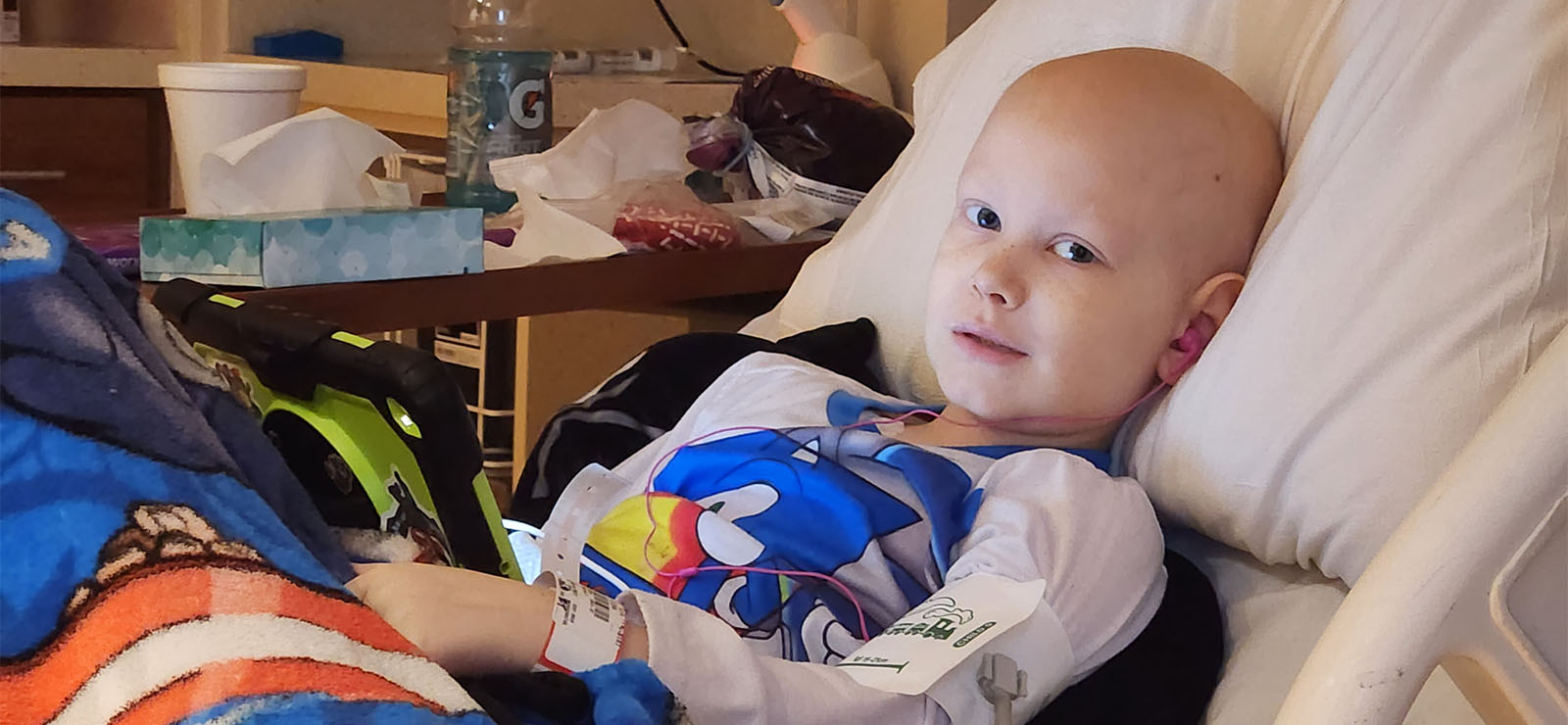By: Daniel Schaefer
January 29, 2024
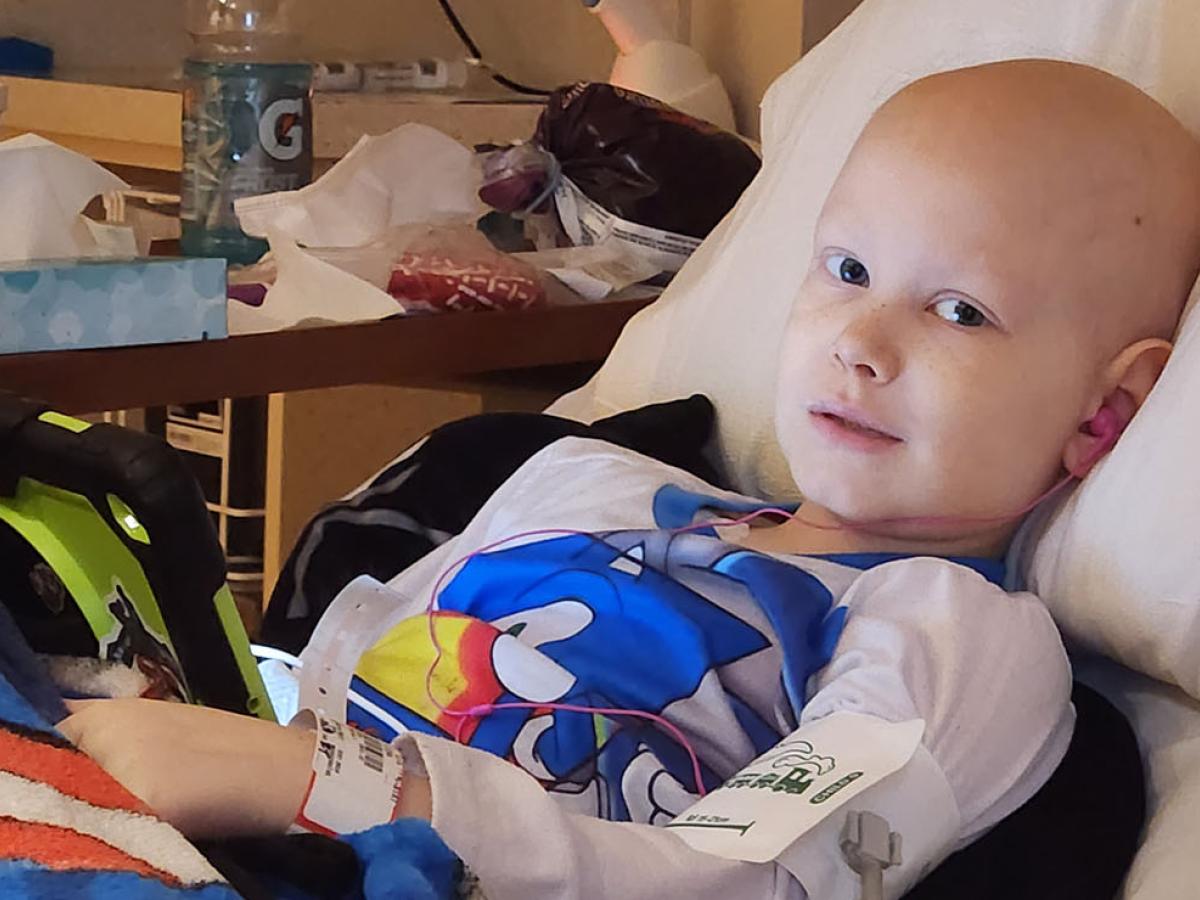
I’ve known a lot of people who have had cancer. My mom had breast cancer. My dad was diagnosed with leukemia about six years ago. I've had several aunts, uncles and cousins who have died from cancer and some who have survived. But when I was trying to process the fact that my kid has cancer, all I could think was that I can't believe this is happening to us.
But it did happen. And it happened quickly.
Learning My Son Had Cancer
It was between classes on a typical day — I teach at a local Christian School — and I got a message from my wife, Sara, asking me to call her. She said it was an emergency.
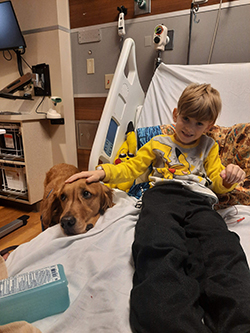
Sara had taken our 7-year-old son, Ezra, to the doctor because he was having pain when he went to the bathroom. The doctor suspected a cancerous tumor and sent us to MU Health Care’s Children's Hospital for further testing. We assumed it was a cyst or a benign tumor — maybe he’d need surgery. We were wrong.
After some testing, Dr. Barbara Gruner came and told us that Ezra had stage 4 rhabdomyosarcoma, a rare and very aggressive cancer. My wife immediately broke down. Ezra just looked at me — he didn’t really know what was happening.
My first thought was that people have cancer all the time and survive. What are his odds? What does this really mean? But Dr. Gruner explained that the odds weren’t good. She didn’t sugarcoat it, and I appreciate that. We aren’t the kind of people who like things sugarcoated — we like hard facts.
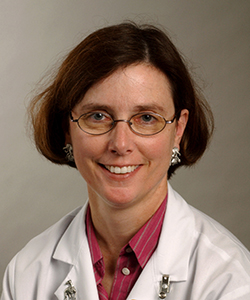
I wasn’t emotional at first. I didn’t break down or anything — that came later. That first week, things moved quickly. We started chemotherapy treatments the next day. We were learning the lingo and meeting everybody on the team. It was go, go, go. It was serious, and it was a lot. Within a week or two, Ezra started to lose his hair. That’s when it all hit me.
Watching My Child Go Through Cancer Treatment
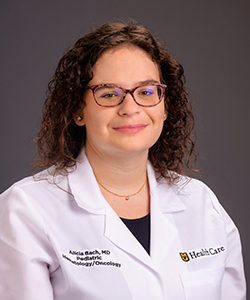
I started shaving my head because it was a way to connect to Ezra, and it felt like the only thing I could do at the time. I was raised to fix things myself whenever possible. But with this, I had no expertise — I couldn’t do anything but trust in the doctors at MU Health Care.
Our MU Health Care doctors, Dr. Gruner and Dr. Alicia Bach, weren't scared of this rare cancer. They went immediately into treating it and were straight with us the whole time. They also went out of their way to show Ezra love and care. They got to know him and really talked to him. They talked to us and listened when we needed to talk. It was like being with extended family. I know there are big cancer places out there, but just because they are big doesn’t mean they’re going to love your kid in a bigger way.
The chemotherapy and radiation treatments were tough for Ezra. He ended up needing more radiation treatments than they initially thought, and the extra exposure took a toll on him. It was hard to watch — I kept thinking he shouldn’t be dealing with all of this. Ezra should be out there running around and being a kid.
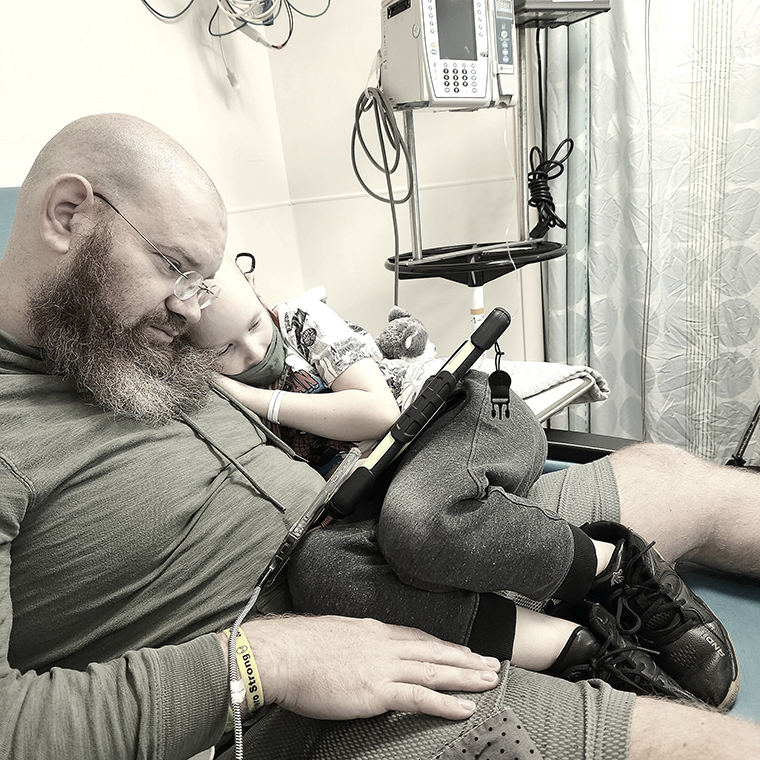
The Chaos of Coping With A Childhood Cancer Diagnosis
Ezra’s treatments were sometimes daily. Others required him to spend extended time in St. Louis. Sara and I did a lot of back and forth so one of us could be with Ezra and the other could spend time with Ezra’s three older siblings. But trying to give everybody their fair share felt impossible.
There was no way to come up with a plan to manage it all. We had a lot of help from our family, friends and amazing community. There’s a lot of support for childhood cancer where we live. I feel like we were where we needed to be when this happened.
Our motto became “day by day,” and we didn’t allow negativity. We knew we had to keep things positive. If we stayed positive, Ezra would stay positive.
Honoring Ezra’s Childhood Cancer Story
One way we all stayed positive was by creating a legacy for Ezra through giving to other kids with cancer. Many people and organizations gave us care packages — and they made a difference.
Ezra wanted the care package he created for others to include Lego bricks. When he developed neuropathy in his hands from treatment, Lego became Ezra’s physical therapy and happy place. He and his older brother have always loved building with Lego just as I did — it connects us.
As an ordained and licensed pastor, I know that ministry is not like an addition problem where you just add something good — the good you do grows exponentially. And that’s what happens when a kid comes up with his own legacy. That good deed affects other kids, who then come up with their own legacy project. These positive acts grow and spread, providing support for tons of kids living with cancer.
Life After Childhood Cancer… A Long Road Ahead
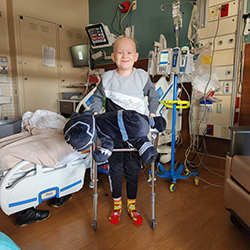
Ezra had treatment for about 60 weeks. Now he’s in remission. He’s even cleared to play soccer. But his energy is still zapped — he can only be active for a short time.
Ezra still has a long way to go. And my wife was recently diagnosed with appendiceal (appendix) cancer. So now we’re on her journey and seeing where that will take us. But MU Health Care has earned our trust repeatedly, and everything we do now goes through them.
I believe that God has a direction and a purpose for my life. Looking back, I didn’t always know I was strong enough to get through something like this. But I had to get through it because I had to be strong for Ezra. I had my faith, and it’s what got me through — I knew God was in charge. I’m not a doctor. I’m not a specialist. All I could do was give Ezra my love, have a positive attitude and show him I believed we would beat this.
I'm hoping that Ezra is going to look back and realize, I beat this, and other kids can, too. I hope he sees that everything he does is, in a sense, a miracle because, based on statistics, he shouldn't have lived. But he did, and now he can make a difference in the lives of others.
Next Steps and Useful Resources
- Read more about Ezra’s cancer journey and how his family is giving back
- Learn more about pediatric cancer care at MU Health Care

